Conspiracy of Eagles Against King Wren
ARTISTIC MANIFESTOS AND WRITERS’ DECLARATIONS
‘We’ as a Country and ‘We’ as an Individual.
Critics and Champions abound everywhere. Every artist, every writer has a death-defying need for them, I say death-defying because their opinions, considered that of the “experts’ can make or kill a work. On the political arena of the world, writers, poets, playwrights and publishers of works of Irish, Scottish, British, Welsh, Manx, Cornish and smaller Island nations expressed the right to have a Celtic and Native Renaissance, several different ones in fact, against some fear mongers in oppressive states that banned anything they considered political hidden in liberal literature. To this extent, poets and writers found themselves exiled, imprisoned, or their works banned.
William Sharp
WILLIAM SHARP, FIONA MACLEOD and WILLIAM BUTLER YEATS
William Sharp said to William Butler Yeats:
“In the world of literature, there is no geography save of that of the mind.”
The birth of pseudonym and nom des plumes began to take place more often, perhaps to enable the writer to speak freely and create more controversial characters.
William Sharp began to write under the name of Fiona Macleod with much success, yet the spirit of Fiona was said to come through him, the works being spiritually channeled, according to his wife Elizabeth. Yet, Sharp insisted she was an integral part of him, although he kept the works separate for a long time. His own authorship was confined to writing art and literary critical pieces, biographies and a novel or two. Fiona’s works for almost a decade, were mythological, poetic and imbued with the spirits of nature, astoundingly visionary. Her characters were Celtic incarnations, mostly tragic heroes or heroines, perhaps Sharp’s way of demonstrating the squashing of the Scottish and Celtic mystical nations by overbearing bureaucratic political ‘tin gods’. He exercised the pen-name to hide his own psychic abilities and visionary part of his life as a man, something he had in his childhood and feared to reveal as an adult.
Only Yeats knew of the two sides of Sharp and wrote individual letters to both, supportive to the Celtic Revival, Irish and Scottish combined, and influenced also by the publisher Geddes who keenly published the works.
ALFRED, LORD TENNYSON
Both Sharp and Yeats were immensely influenced by the Pre-Raphaelite movement and loved the poetry and paintings of the Romantics, like Dante Gabriel Rossetti’s Proserpine, (he loved the poetry of John Keats), John Everett Millais’s Ophelia based on Shakespeare’s Hamlet, and the poetry of Alfred, Lord Tennyson. ‘The Lady of Shalott’ (My mother could recite all of that poem), ‘Morte d’Arthur,’ ‘Ulysses’, ‘Sir Galahad’, ‘Charge of the Light Brigade’ and his ‘feminist epic’: ‘The Princess.’ Waterhouse was inspired by his poetry. Tennyson’s famous quote from In Memoriam was his immense struggle with grief:
“’Tis better to have loved and lost than never to have loved at all.”
This was a tribute to Tennyson’s best friend for whom he wrote a poem: ‘In Memoriam A.H.H.’ when Arthur Henry Hallam died at the age of 22 years old.
Tennyson was awarded the Chancellor’s Gold Medal at Cambridge for a poem called ‘Timbuktu.’ (Timbuktoo).
(The first reference I had of ‘Timbuktu’, was when, as a child, one Saturday, I asked my father where he was going, and he answered: “To Timbuktu, Deanie. Won’t be long.”… (he always called me Deanie)… I asked him where that was, and he told me: “Two miles away in Trillick.”
For a very long time I thought this place was in Trillick, a small town in County Tyrone. He would come home later having collected the ‘papers and comics’ for the weekend reading, so I looked forward to his trips to ‘Timbuktu’. I discovered he was meeting my Uncle Ernie in Hodge’s pub (namely ‘Timbuktu’, or sometimes even ‘The Post Office’!). They would bring home the Dandy, Beano, Topper, Beezer, and Bunty, Woman’s Own, Red Letter, and The Weekly News. Great fun! Imagine my surprise on reading about Tennyson’s ‘Timbuktoo’ that it was a vision of Heaven given by a white-winged seraph on the edge of the Sahara Desert in Africa. So glad that Daddy did not have to go that far to get the Bunty for me. I loved the Four Marys.)
Bunty, Iron-Singed Frock, and the Four Marys, on early British 1st Class Stamp.
William Sharp eventually had to free himself and admit that he was also Fiona Macleod, when publishers said payment could legally not be rendered to a ‘spirit’. I believe there was a British court involved in the decision to eventually pay Sharp for Fiona MacLeod’s works. Sometimes her name was ‘MacCloud.’
Pharais: A Romance of the Isles was published in 1894 and ‘The Immortal Hour’ was put forward as a play by MacLeod, but Yeats rejected it in the Irish Theatre. The relationship between Sharp and Yeats became a little strained, although Yeats still wrote to Fiona, and when Sharp died, he wrote a lovely letter to Elizabeth Sharp who was not only the wife but a cousin of William Sharp. He called her husband a genius and proclaimed that thousands would feel his loss. He also said:
“One of the Gates of Wisdom has been closed…. He was certainly the most imaginative man I have ever known.
Charles Dickens and his artist George Cruickshank in the balloon basket!
CHARLES DICKENS, WILKIE COLLINS and HANS CHRISTIAN ANDERSON
Charles Dickens wrote as Boz, a familial nickname of Moses given by him to his brother Augustus that later changed to Boses and then Boz. He was born 7th February 1812 in Portsmouth and died on 9th June 1870 aged 58 years old in Gad’s Hill Place. He lived in parts of London and travelled by steamboat to America for a time. He said it was an awful journey.
(When I met Robin, he was completely into Charles Dickens, and especially the works he published as Boz, to the extent that when he bought a home on Long Island, New York, he renamed it after Dickens’s residence: Gad’s Hill, in Rochester. We lived there for a time. I believe we had every copy of the London Illustrated News that contained works of Dickens and other Victorian writers, plus the ‘Sketches by Boz’ books and ‘The Pickwick Papers’. My first pen and ink drawings for Robin were characters from ‘Christmas Carol’. We traipsed to every graveyard to find where Dickens was buried, where his estranged wife Catherine Hogarth-Dickens was buried, her sister Georgina Hogarth who remained with Dickens as housekeeper and best friend for life, his later mistress the actress Ellen Ternan, also the resting place of his muse Mary Hogarth, Catherine’s younger sister, buried in Kensal Green Cemetery. She died at a young age and was the muse for many of his writings. ‘Little Nell’ who also died young in his book was based on her. Dickens, who was an emotional man, had great difficulty killing off Little Nell, because he was comforted by Mary’s spirit and image his entire life. Muses are Immortal for writers and can appear at any time in life.)
Dickens wrote about the social state of Victorian London and really hammered home the very unsocial poverty and sickness that did abide in the country at the time, accentuating the class systems. He tried to help alleviate sorrow and poverty wherever he could. His illustrator of the Boz books was George Cruickshank who drew pictures of the Seven Dials (Dails) in London where the gin drinkers and gamblers had hung out in their dark dens, where loose women and cut-purses were plentiful, and murder took place regularly. Now it is posh pub, gourmet restaurant, and theatre land in London.
Dickens entertained other writers such as Wilkie Collins, ‘The Woman in White’ (1859) and ‘The Moonstone’ (1868). He was his most enduring friend of twenty years who acted in plays with him and visited his home. However, one time, after being the recipient of 9 years of letters he rarely answered, Charles Dickens invited Hans Christian Anderson, a fan, (who wrote overly praising letters regularly to him) to stay for two weeks which turned into five tedious weeks, too long a period, during the sad breakdown of Dickens’s marriage. This author vexed him in the end because of his habit of crafting little bitsy things from scraps of paper and wood, and gathering posies to present to him, even making a daisy chain for Wilkie Collins’s hat that Collins did not realize was there until he walked into the town and attracted amusing smiles and rather strange looks. Hans Christian Anderson said:
Every man’s life is a fairy-tale written by God’s fingers.
Yet, some of Anderson’s endings were disappointingly sad or, in some cases, horrific.
Charles Dickens did not think much of the fairy-tale visit, when his reluctant son Henry was required to shave Hans, (in the absence of an expected provision of a valet in the mornings), but then pleadings from a frantic son to Dickens forced him instead to provide a horse and carriage to take Anderson into town to be shaved. One evening he went to see Dickens and Collins act in their play and cried at the end of it, so emotional was he of his hero’s death. He was obviously besotted or half in love with Dickens. Although, on one occasion when he came from London back to Gad’s Hill, he had dreadful corns on his feet because he thought the driver of the hansom cab was going to rob and try to murder him, so he put everything of value into his boots: coin, purse, even scissors, watch, hard books, jewels that cut the feet of him and caused sore corns that had to be mercifully treated by the family. He was tolerated but expected to be waited on hand and foot (to coin a phrase).
One of Charles Dickens’s most famous quotes was:
“No-one is useless in this world who lightens the burdens of another.”
It was a quote tediously adhered to, during Anderson’s visit.
MARY ANN EVANS ALIAS GEORGE ELIOT
George Eliot’s quotes:
“It is never too late to be what you might have been.”
“The strongest principle of growth lies in the human choice.”
This Victorian English prolific novelist wrote books with strongly abiding psychological characters, such as: Silas Marner (1861) Middlemarch (1871-72) The Mill on the Floss (1860) Adam Bede (1859) and Daniel Deronda (1876) Romola (1862), Felix Holt, The Radical (1866) and many others.
Mary Ann Evans was a translator, poet, journalist and historian with a high intelligence, enough to know that women were not considered masterful or meaningful enough to warrant being authors, so she decided that her books were for everyone but that she would have more chance being published as a man. She was born on 22nd November 1819 and died on 22nd December 1880 at 61 years old.
She was scathingly critical about other women writers who were published because of silly articles and flowery novels and she wished to be taken seriously as a writer.
A radical periodical named The Westminster Review was edited by her and owned by John Chapman. Sometimes she let him take the credit for the writing and other times she signed her name as Marion Evans. It gave her a voice as a woman and a following.
She had a scandalous affair with a Radical writer George Henry Lewes. He was married and had an open marriage with his wife who consequently had children by another lover but he registered them in his own name. The law did not allow divorce so when he fell in love with Eliot, they lived together for the rest of Lewes’ life. One of the main reasons for her pen name was to separate her work from her ‘scandalous’ life. He encouraged her to do this. After he died, she married a banker, John Cross.
Charis Edworthy (Campaign Manager for Harper Collins) and a great researcher discovered and wrote in 2019, that Queen Victoria loved George Eliot’s Adam Bede, as did also Charles Dickens. Queen Victoria read it many times and apparently had two paintings commissioned from scenes in the book.
Charles Dickens suspected that a woman was masquerading as a male writer in Scenes of a Clerical Life, a series of short stories by Eliot, so he wrote to George Eliot as a ‘Dear Sir’, and said in his letter that there were womanly touches in the writings that did not convince him of her gender. She did not answer in the affirmative but kept up the male fascade.
Much later he inadvertently discovered that he was indeed right and wrote another letter to ‘My Dear Madam’, expressing his delight about it, not discrediting her at all.
( NOTE: Thank you, Charis. By the way, one of my favourite Ghibli films: Howl’s Moving Castle taken from your favourite book by Diana Wynne Jones is brilliant, perhaps a little more gritty in the book but both amazing.)
Very many writers have taken on different personas for personal reasons, or political reasons and mostly for safety, sometimes out of fear, or the protection of others and themselves, not wishing to alarm their families, or reveal alter egos and archetypes, but always fighting against discrimination and unfair judgement, whether it be the laws within the minds of others or the laws of a country.
Oscar Wilde and Lord Alfred Bruce Douglas (Bosie)
Oscar Wilde, for example, chose to go into his court case thinking he was defending his literary rights and that his wit and faith in literature with free expression would win against the hypocrisy of unfair laws. He faced the loss of his freedom, the betrayal of his lover, the punishment of hard labour, exile, the loss of his love, his family, and the near death of his works. He retained the friendship, love and extreme loyalty of Robbie Baldwin Ross who cared for him greatly and protected his literary works. His writing was resurrected but his death was like martyrdom, (it did kill him in the end in a lonely place: L’Hotel in Paris). He gave up and died of Meningitis from a long-lasting ear infection that robbed him of hearing. His last words:
“Either this wallpaper goes, or I do.” He went.
He became a hero, never to be forgotten in history. Eventually, the laws were changed to accept homosexual love between men at the age of consent.
One can visit the room in the hotel in Paris that has been redesigned like his London abode as it was when Oscar left the body. Robin and I visited L’Hotel while in Paris. The room has a permeating sadness for the loss of this genius.
James Joyce also went into exile, because of Ulysses, his work being banned in Ireland, challenging religion.
Samuel Beckett also went to Paris after falling out with his mother. He lived there during the ‘Joyce Years’, went home again but then returned to live there, and when World War II broke out in 1939, said:
“I prefer France at war than Ireland at peace.”
He also quoted:
“Try again. Fail again. Fail better. Dance first. Think later. It’s the natural order.” France seemed to be a survival haven for those freedom writers, wandering or exiled.
Even Beau Brummell, an English dandy, once a Lieutenant in the 10th Light Brigade, became a friend of Royalty because of his celebrated wit. He was an addicted gambler with extravagant tastes, becoming the arbiter of men’s fashion in Britain. He fled to Calais in poverty after his fall-out with the Prince Regent, who became King George IV in 1820. The Prince Regent and his favourite ‘Duke gang’ had fiscal spendthrift tendencies. Brummell’s income could not compete with the Treasury, thus causing him to suffer terrible gambling losses and debts, then fearing debtor’s prison when he did not have wins. His ‘yo-yo’ temperament became problematic. Challenging Royalty was not a wise move, when he had been given the ‘cut’ and was not acknowledged one day. He became a rude wit who then insulted the Prince in a flash of temper, by asking loudly, within earshot, to another of their friends Lord Alvanly: “Alvanly, who is your fat friend?” It ensued in an unholy row of flying insults with the Prince, one to the other, and eventually became a complete ‘snub’ of the dandy by Royalty.
Beau did bring long ‘stove-pipe’ trousers into fashion instead of silken tight britches and threw off the powdered wigs, a true blessing for most gentlemen today. except in legal circles. He was famous for being famous, and never got over the Royal snub nor the loss of his friendship with the King of England, ending up for a spell in a debtor’s prison in France, rescued by old Etonian friends, and then suffered with a syphlitic madness in a paupers’ lunatic asylum in Caen, eventually dying there in 1840 when he was 62. King George IV died ten years before, obese and gouty, with suspected Porphyria, like his father George III. It is a genetic blood disorder that is controlled successfully now, but was wrongly misconstrued as Vampire’s disease, as the gums shrink back to produce fangs and the urine becomes red, as if blood had been drunk. George IV had a vast amount of illegimate children, who hopefully escaped the ‘gene’. His secret Roman Catholic marriage to Maria Fitzherbert was not recognized and he refuted his forced Protestant marriage to Caroline of Brunswick.
Going back to William Sharp, it was interesting to me that, for example, Sharp chose the pen name of a female author, also for whom he chose a different religion… he was Scottish Protestant with intermittent possible pagan or agnostic leanings, and his alter-ego Fiona was Roman Catholic, a brilliant poet with mythological Pan-Celtic leanings. Were they two halves of one whole personality in one body that could be tapped into and expressed freely by those two different natures? We write our way through different characters, creating or exploring them fully to make them believable and unleashing them into our works. Are we actors in the drama, becoming male or female as we so wish? There is always need of the artistic manifesto and our own declaration of rights to be made somewhere in the world against unfair laws and exploitive industries trying to enslave us or dictate to us.
Robin fought to the end to defend the rights of all musicians, writers and artists.
No SATs can measure the creative mind, and the unlimited creative minds are the cog wheels for all life on the planet and for most industries. However, the artists, scriptwriters, and authors themselves are often paid poorly and sometimes their works plagiarized, or their copyrights stolen. Even scientists make discoveries and the companies they work for, take the credit, without giving any individual recognition. They are paying for ‘their creative thoughts’ but not giving them recognition. It happened to a female scientist I know who made an important discovery in the make-up of cosmic matter. She left the company and dropped out of science afterwards. There is room for everyone, and individuals have the right to have their life’s work recognized. Many hands can move the mountain if we have the spirit of co-operation and the courage to speak our thoughts when something is unfair, or someone is being ‘used.’ It is important to keep on being creative but not just in our thoughts.
My mother always said: “We can’t plough a field by turning it over in our mind.”
There has to be action coupled with the thought in order to get anything done.
As George Eliot said:
“The strongest principle of growth lies in the human choice.”
Making the right choice is the key.
DWINA ***




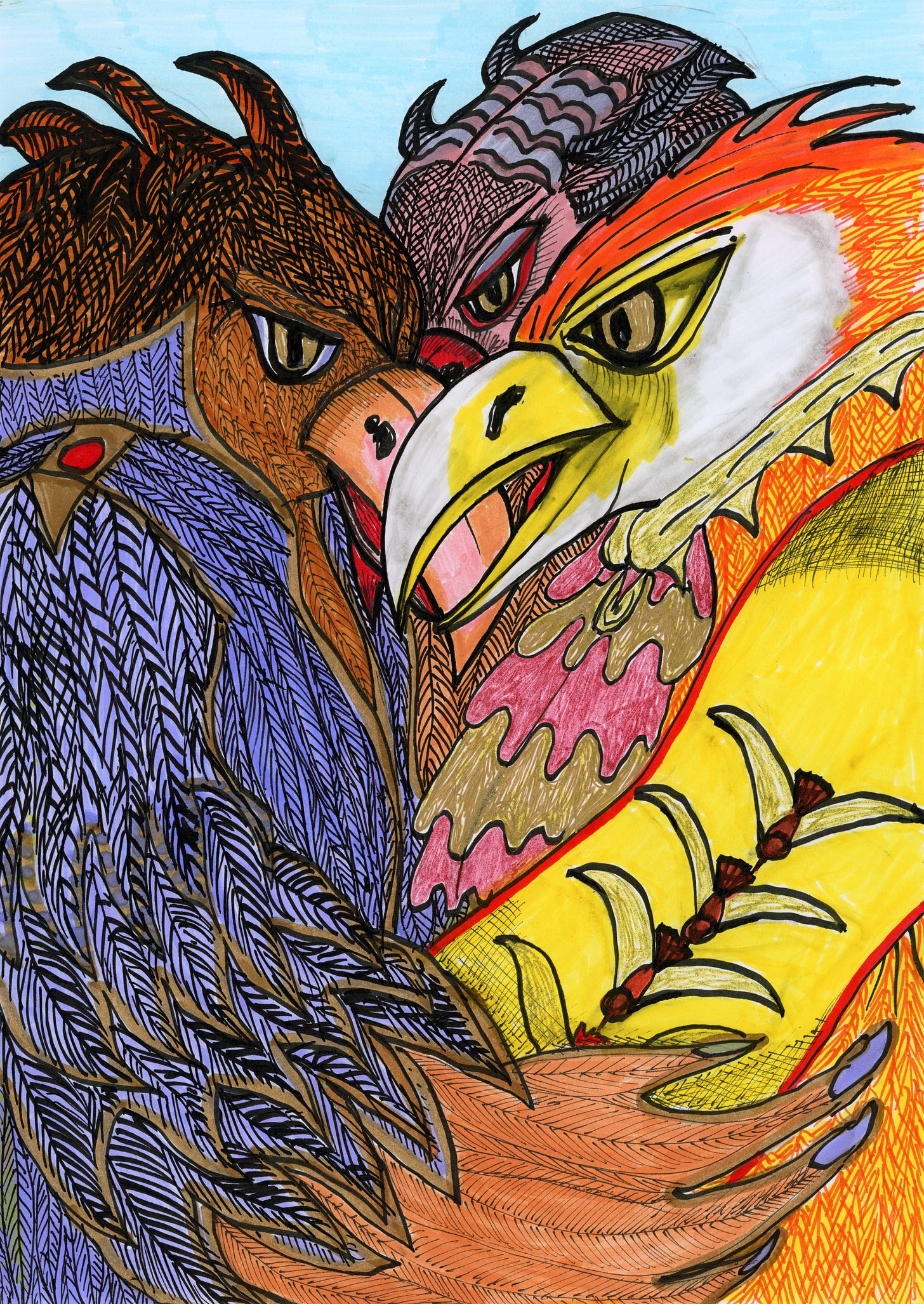
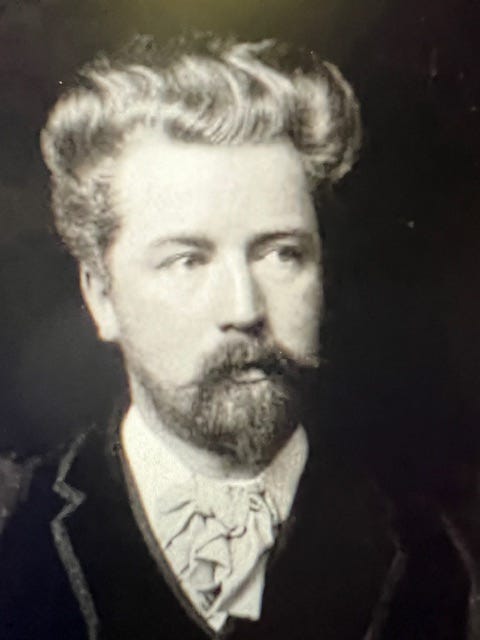

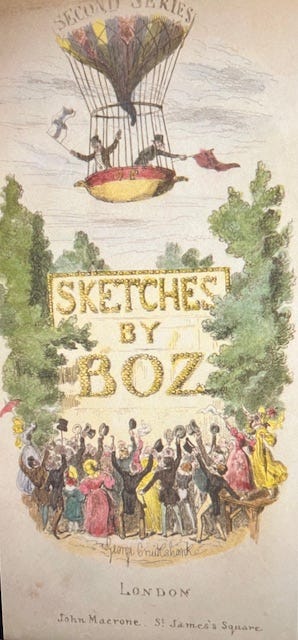
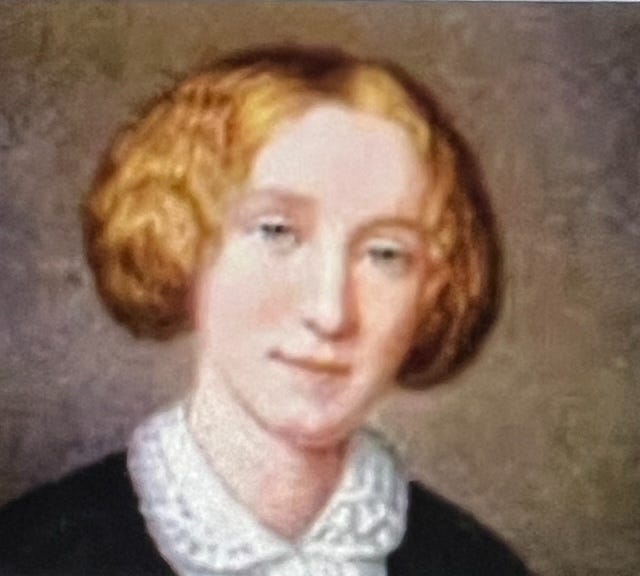
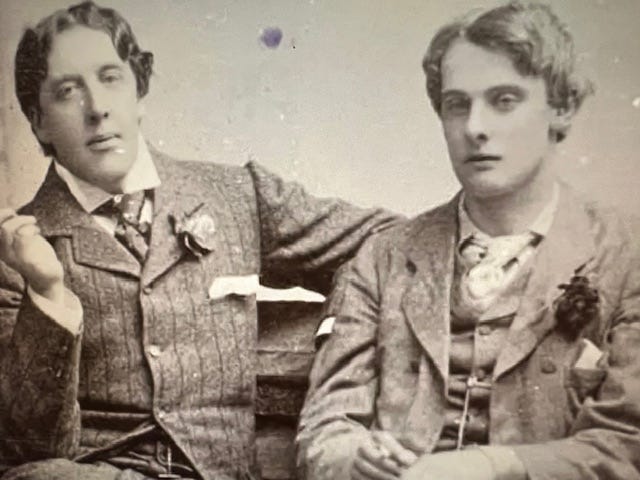
Wowwy! There is a lot of intriguing informed packed here Dwina! Amazing! I especially love this quote by Jans Christian Anderson “Every man’s life is a fairy-tale written by God’s fingers.”
I wonder why the depressing endings to so many of his tales? Maybe those Victorian Days brought out social ills to the surface? Great writing beautiful lady! Bless you! ✨💖✨🤗
Fascinating.. once again you bring history alive!